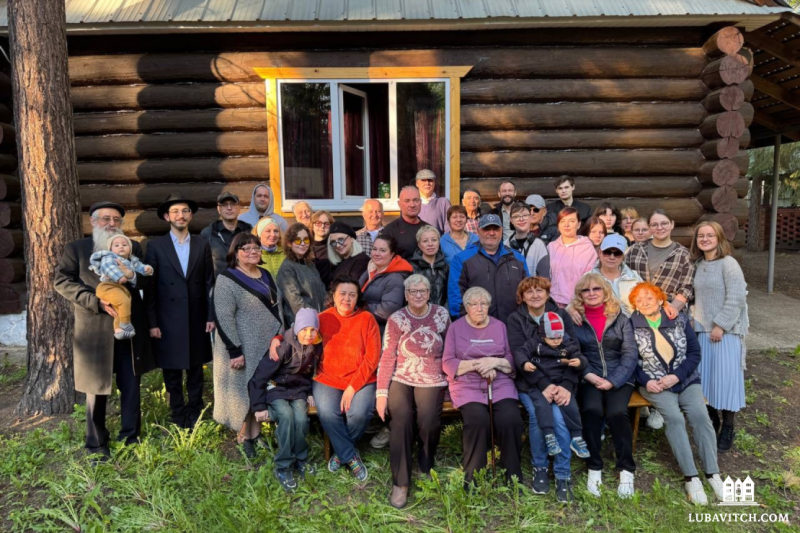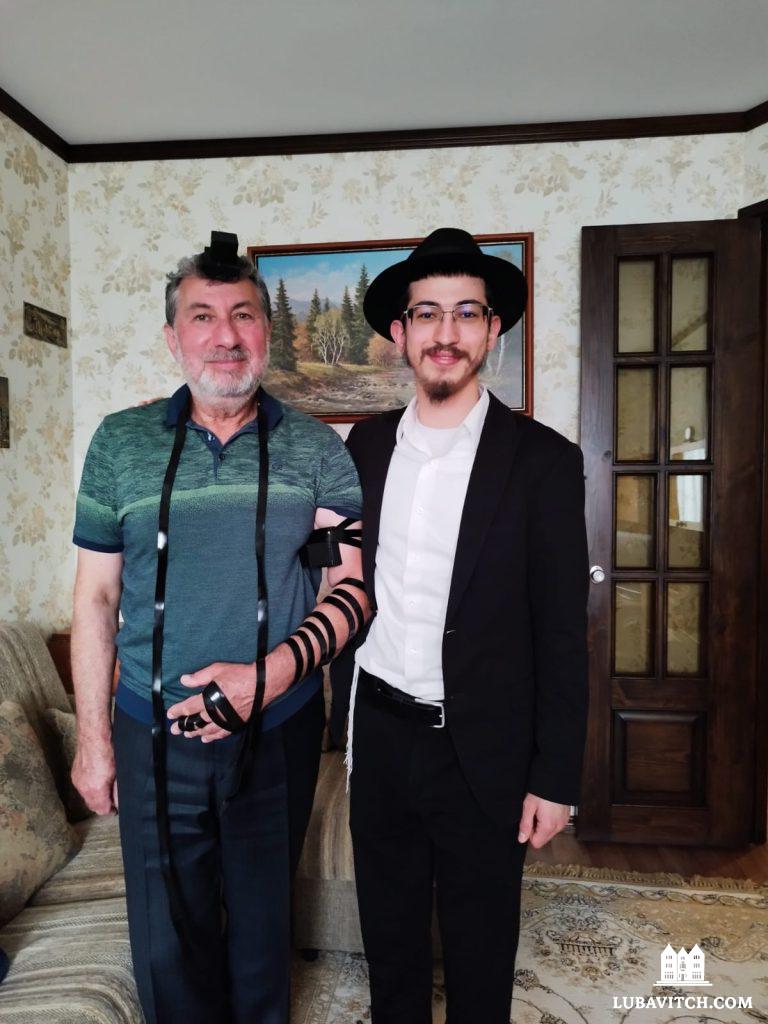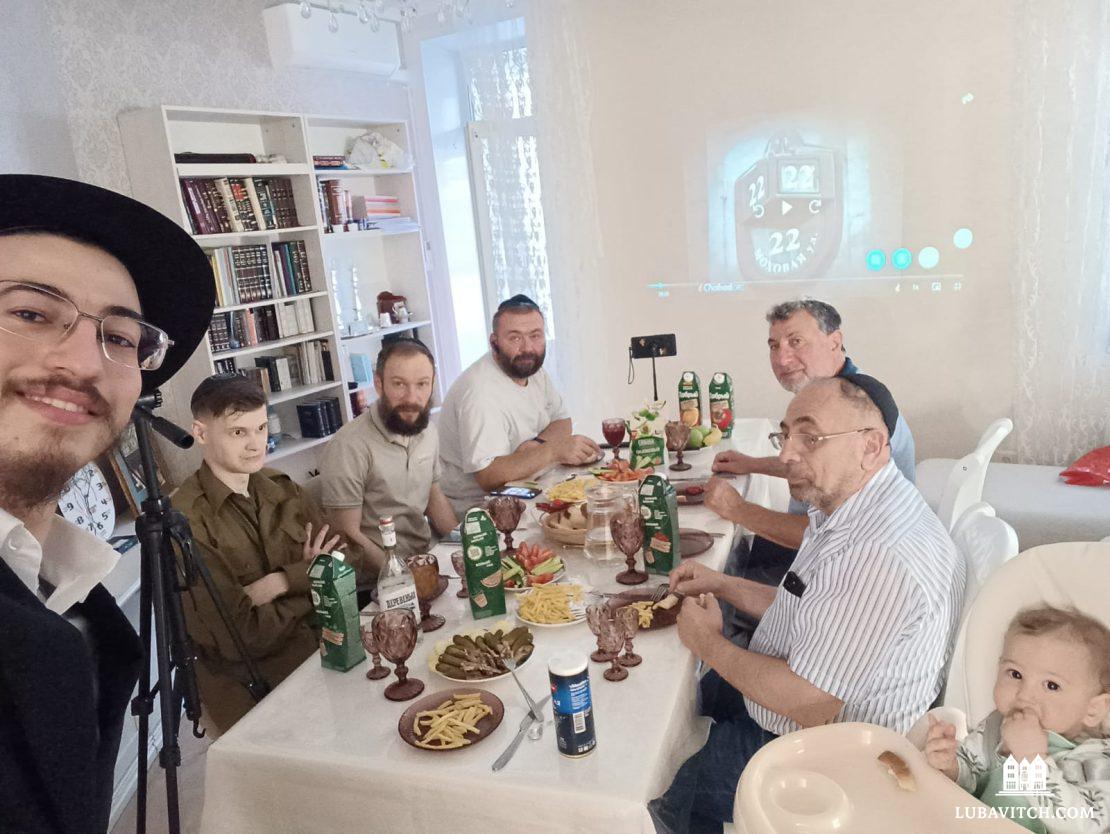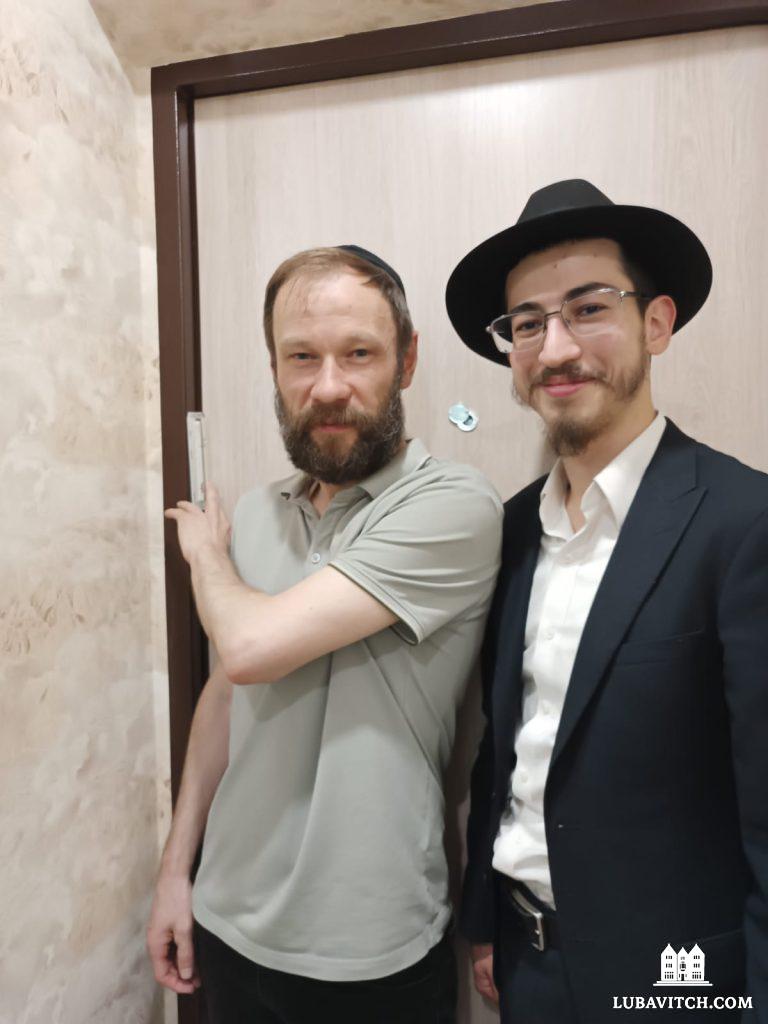
Living Jewishly in Tatarstan
by Leibel Kahan – Lubavitch.com
Far from St. Petersburg or Moscow, the city of Naberezhnye Chelny in the Russian Republic of Tatarstan is a booming industrial hub. For decades, the Jews of Naberezhnye Chelny lived without a rabbi, without a synagogue, and often without a clear connection to their heritage. That changed six months ago with the arrival of Rabbi Chaim Dovid and Chaya Tzippora Paer.
Right before they moved, they met Eliyahu Meshcheryakov, a lifelong resident of Naberezhnye Chelny, at a gathering in Moscow. “At the time, I only had a vague understanding of Judaism and its traditions,” Meshcheryakov said. “I didn’t even have a brit milah.”
But the encounter moved him. He decided to have a brit milah, and he stayed in Moscow for Shabbat, immersing himself in the experience. “He came back a different person,” Rabbi Paer said. “Since then, he’s been growing stronger in his Judaism every week.”

Now, Meshcheryakov often joins the Paers for Shabbat meals, prayer, and Torah study.
“We knew we were moving to a city with no Jewish infrastructure, and we wondered if anyone would respond,” said Rabbi Paer. “Then we saw something like this, and we knew we were going exactly where we needed to be.”
Since settling there, the Paers have been slowly building a connected Jewish community where almost none existed. The city — home to nearly 600,000 people—is a relatively young one, established only 50 years ago when the massive KamAZ truck factory was built.

For longtime resident Nikolai Vetrov, the Paers brought new energy and meaning to Jewish life. “From the first day we met, Rabbi Paer became a close friend,” Vetrov said. “Now we have someone who can teach our community our traditions in depth and help us pass them on to our children.”
The Paers host weekly Torah classes, holiday events, and Shabbat meals in their home or rented spaces, although the construction of the official Chabad center is nearly finished. “We still have a lot more to do,” said Rabbi Paer. “There are more doors to knock on, more Jews to meet and connect with. But that’s why we’re here.”











